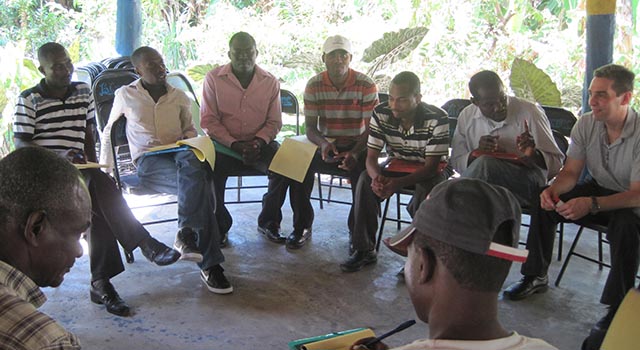IPCR has an average of 20
students per classThe IPCR program requires 39 credit hours of graduate coursework and a capstone that can be completed in two years (full-time) or up to six years (part-time). The curriculum distinguishes itself by offering diverse courses that cover everything from the role of art in post-war healing to dealing with memories of the past to countering violent extremism in fragile states.
The rigorous curriculum combines instruction from renowned practitioners, opportunities for internships and fieldwork, and the development of useful skills for a career in peacebuilding. Beyond building strong theoretical foundations, IPCR students learn practical approaches to peacebuilding, negotiation and mediation, reconciliation, and cross-cultural communication.

